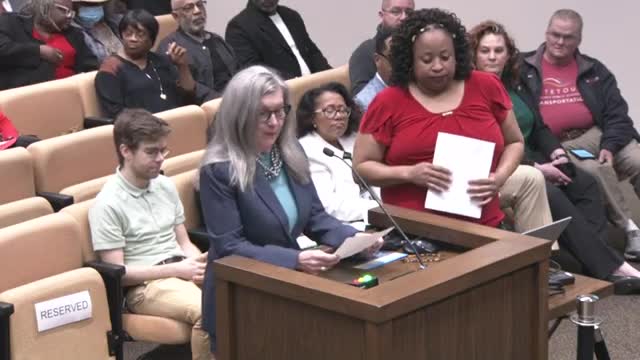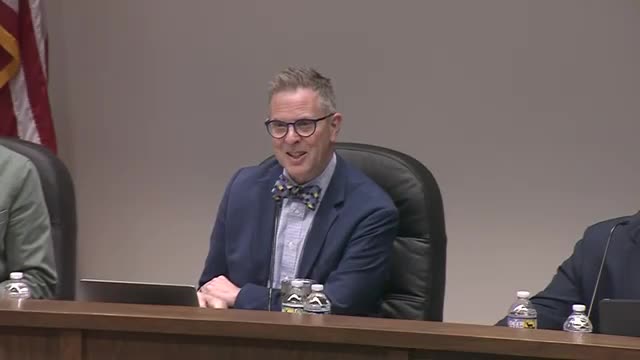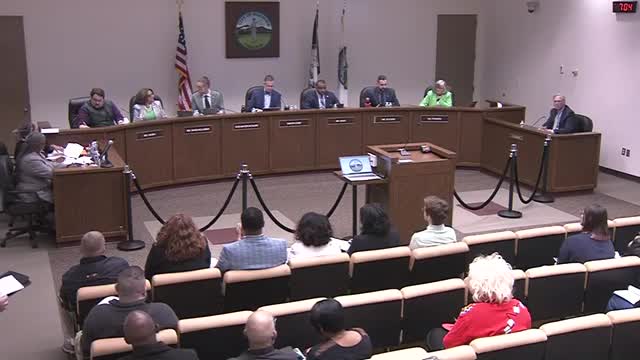Article not found
This article is no longer available. But don't worry—we've gathered other articles that discuss the same topic.

Public commenter urges council to end water fluoridation, cites health studies

Residents press council on chronic homelessness, safety and services

Parents, teachers and PTAs urge council to keep school funding at 40% of local revenue

Friends of Washington Park urge council to commit to saving historic caretaker’s cottage

Council hears public input on HUD Consolidated Plan; staff outlines $2.5M in annual entitlement funds

